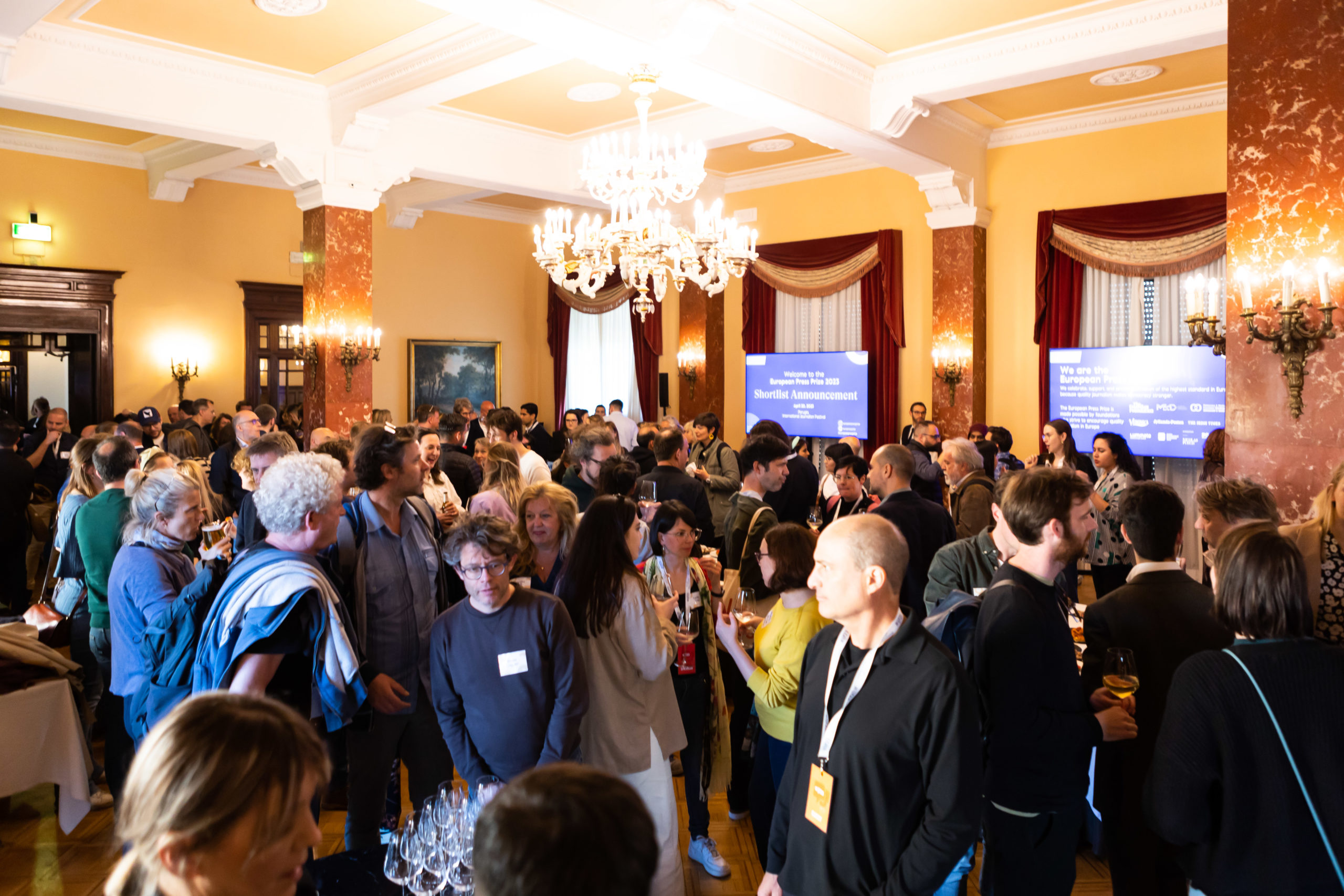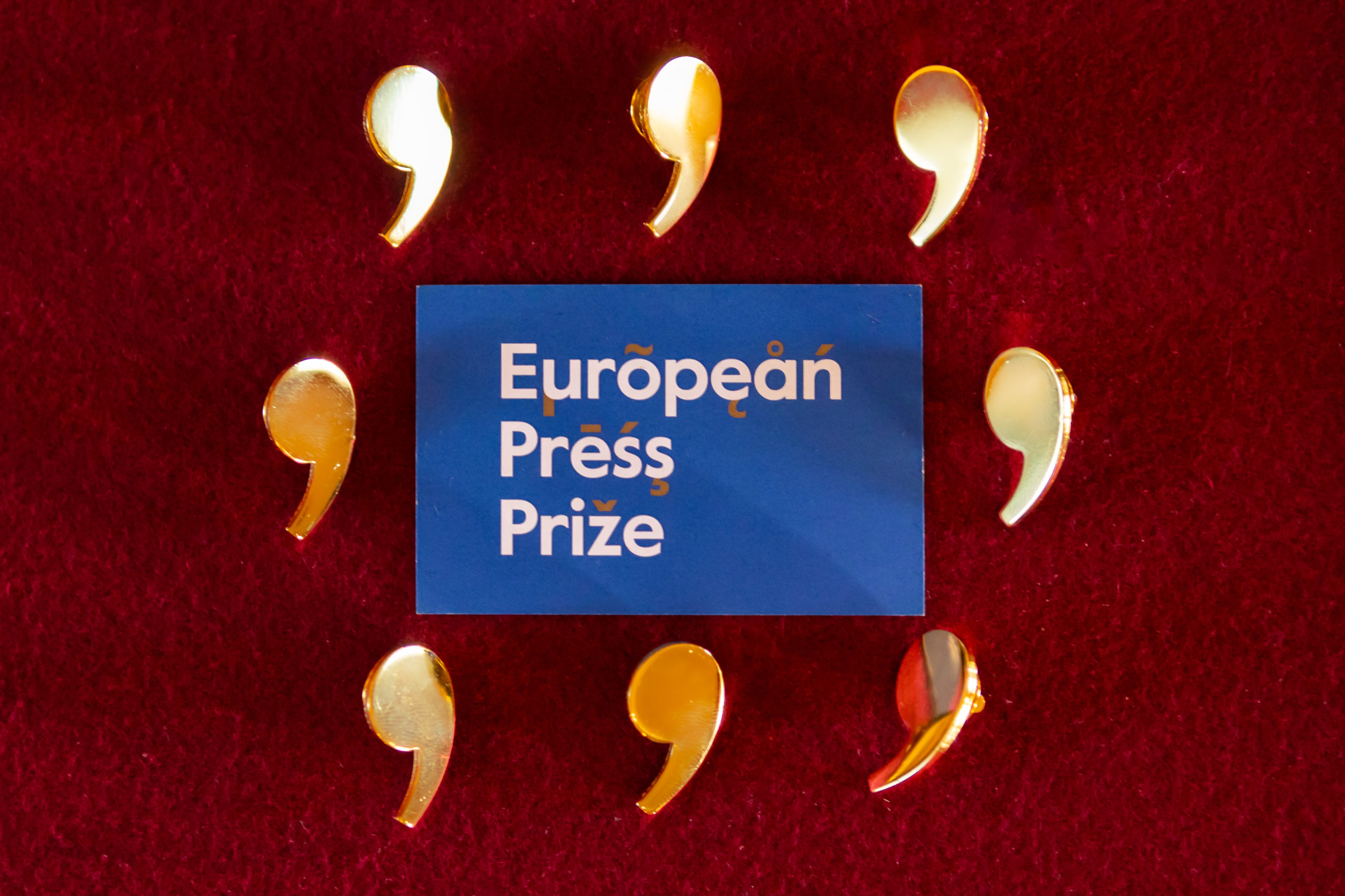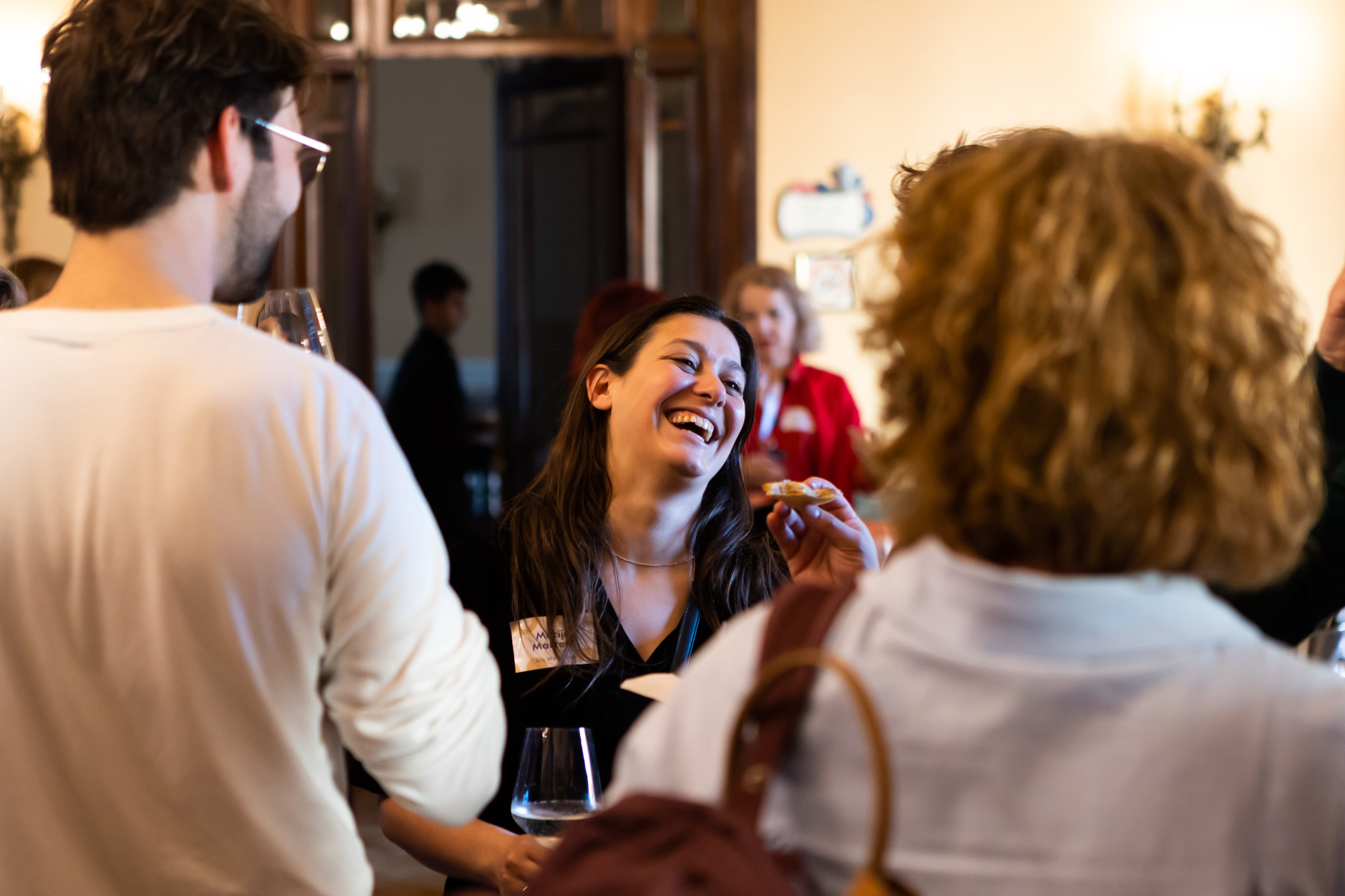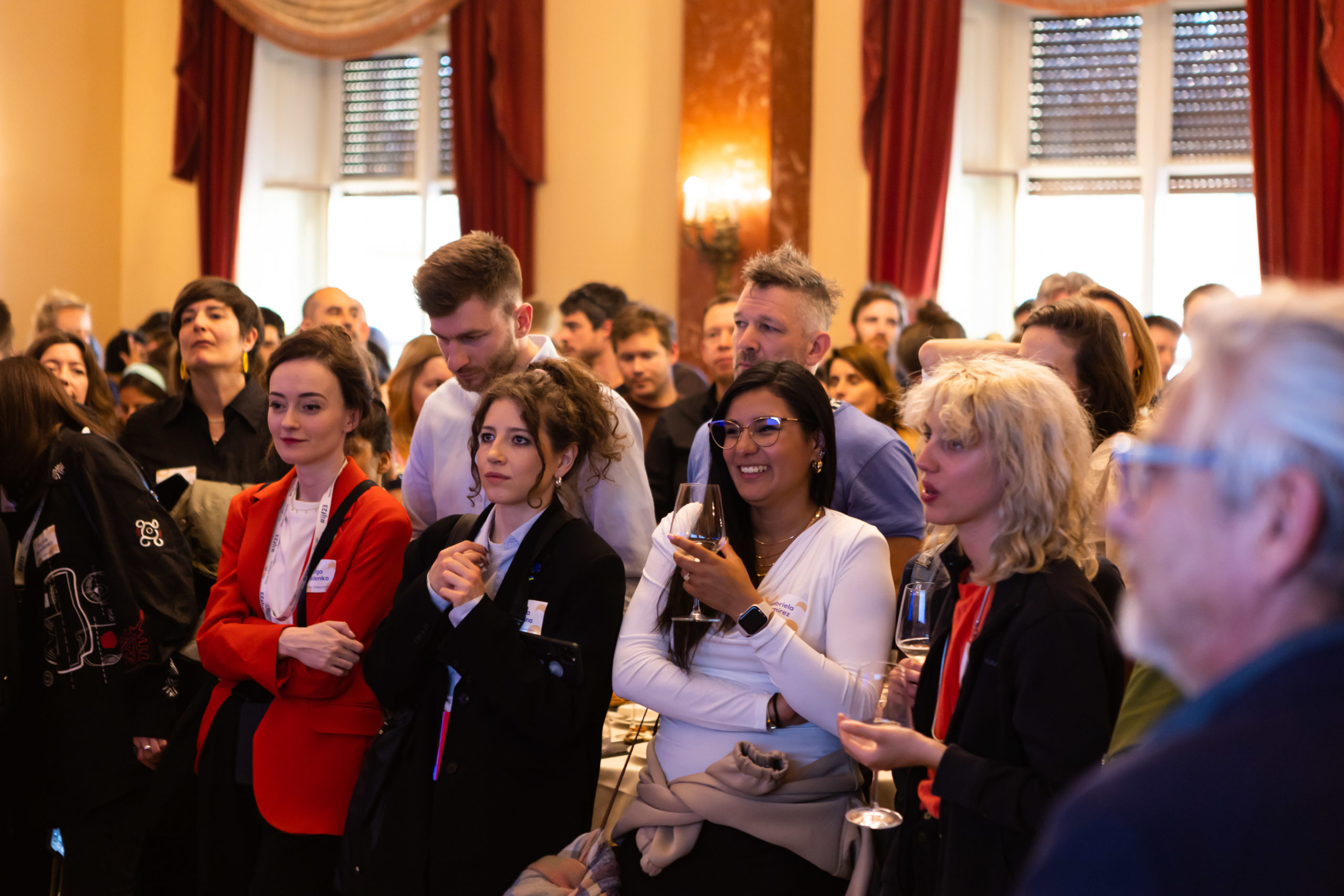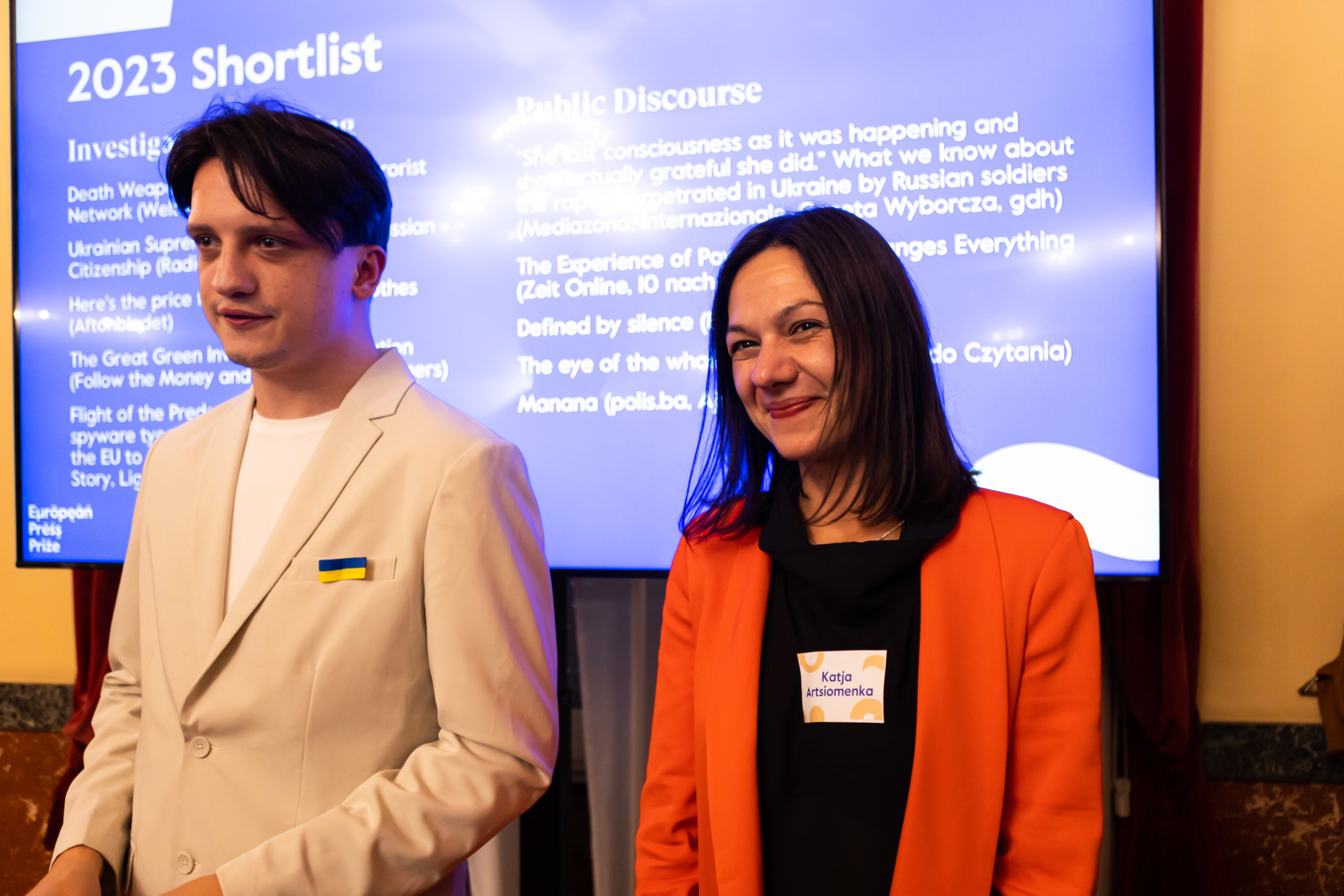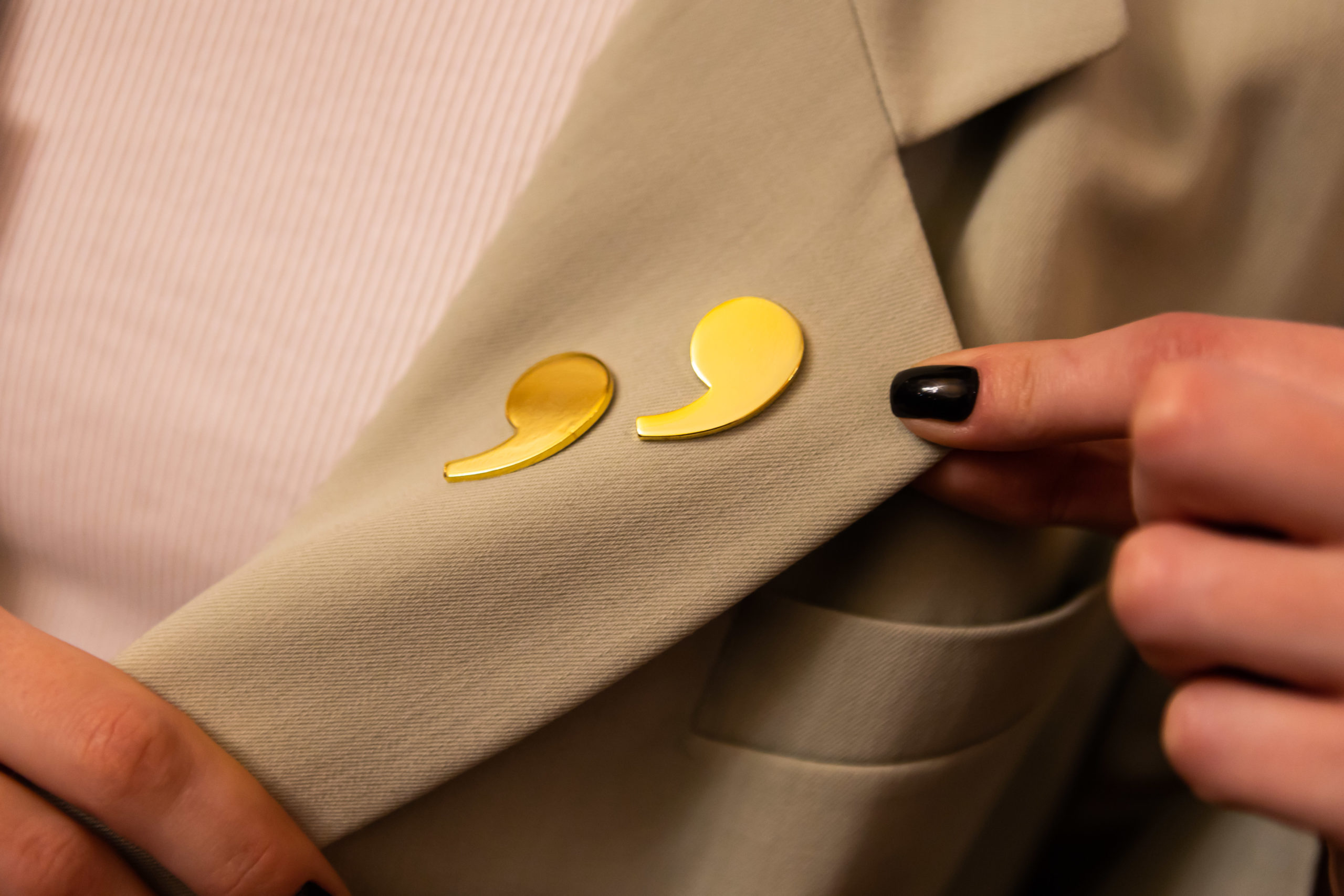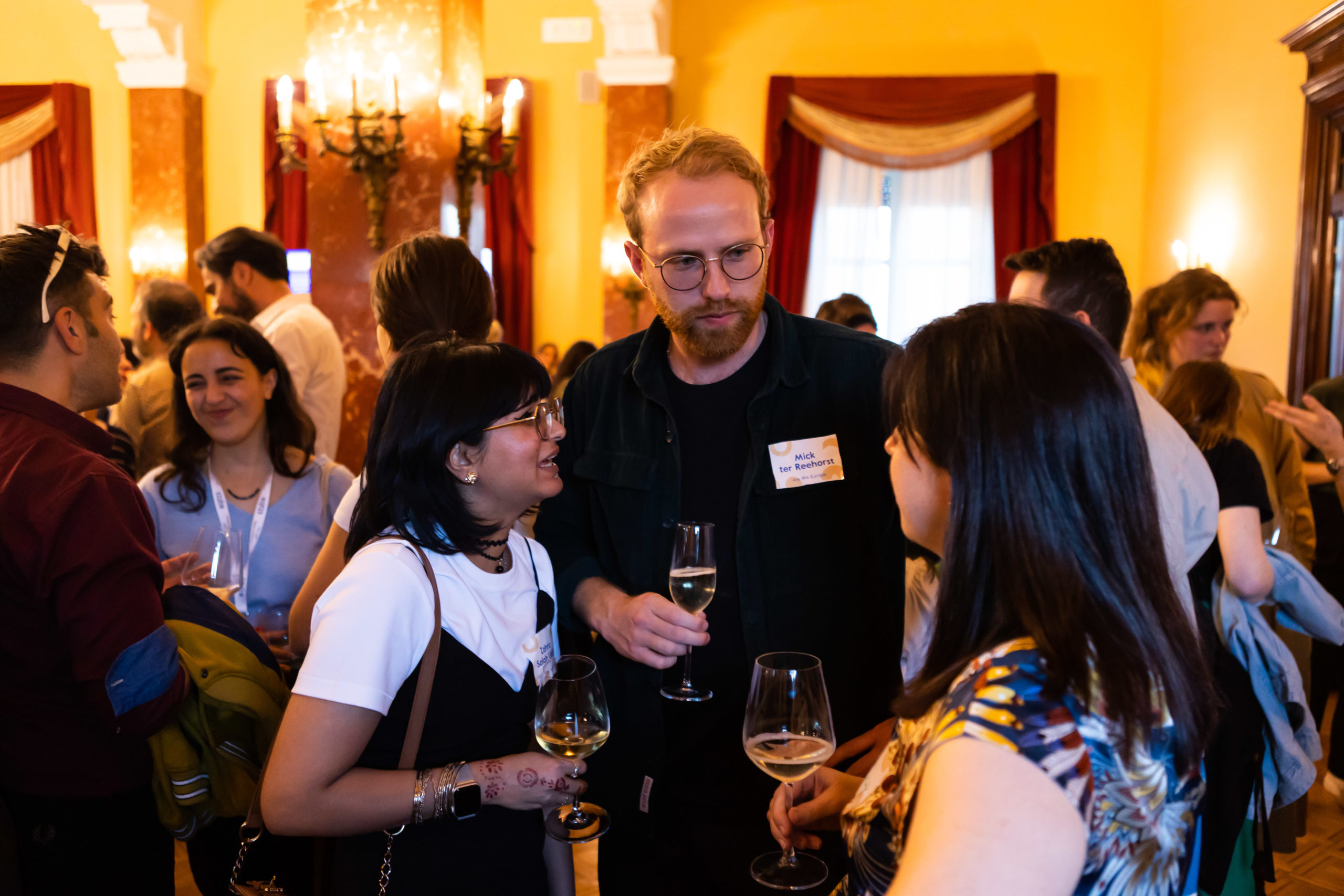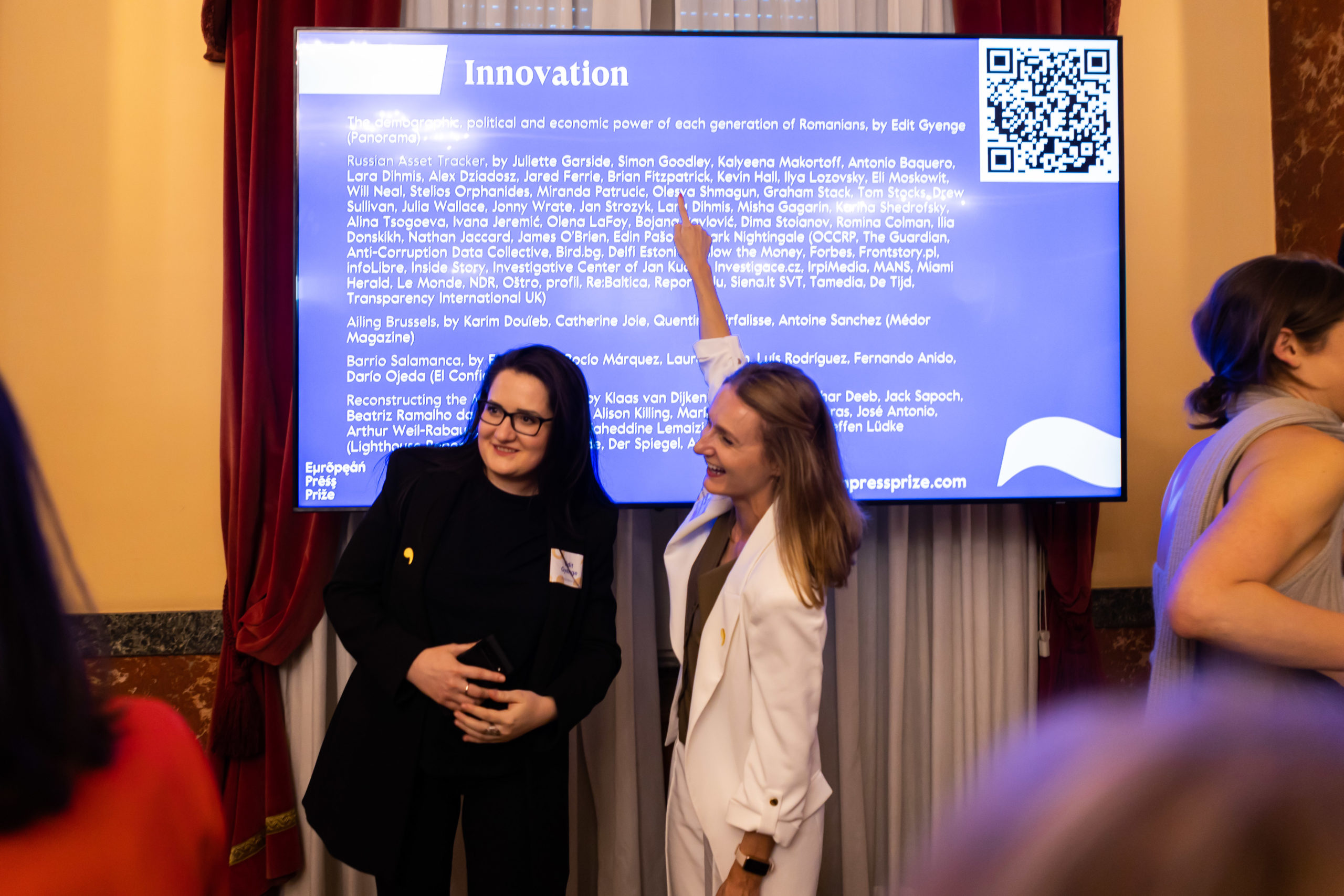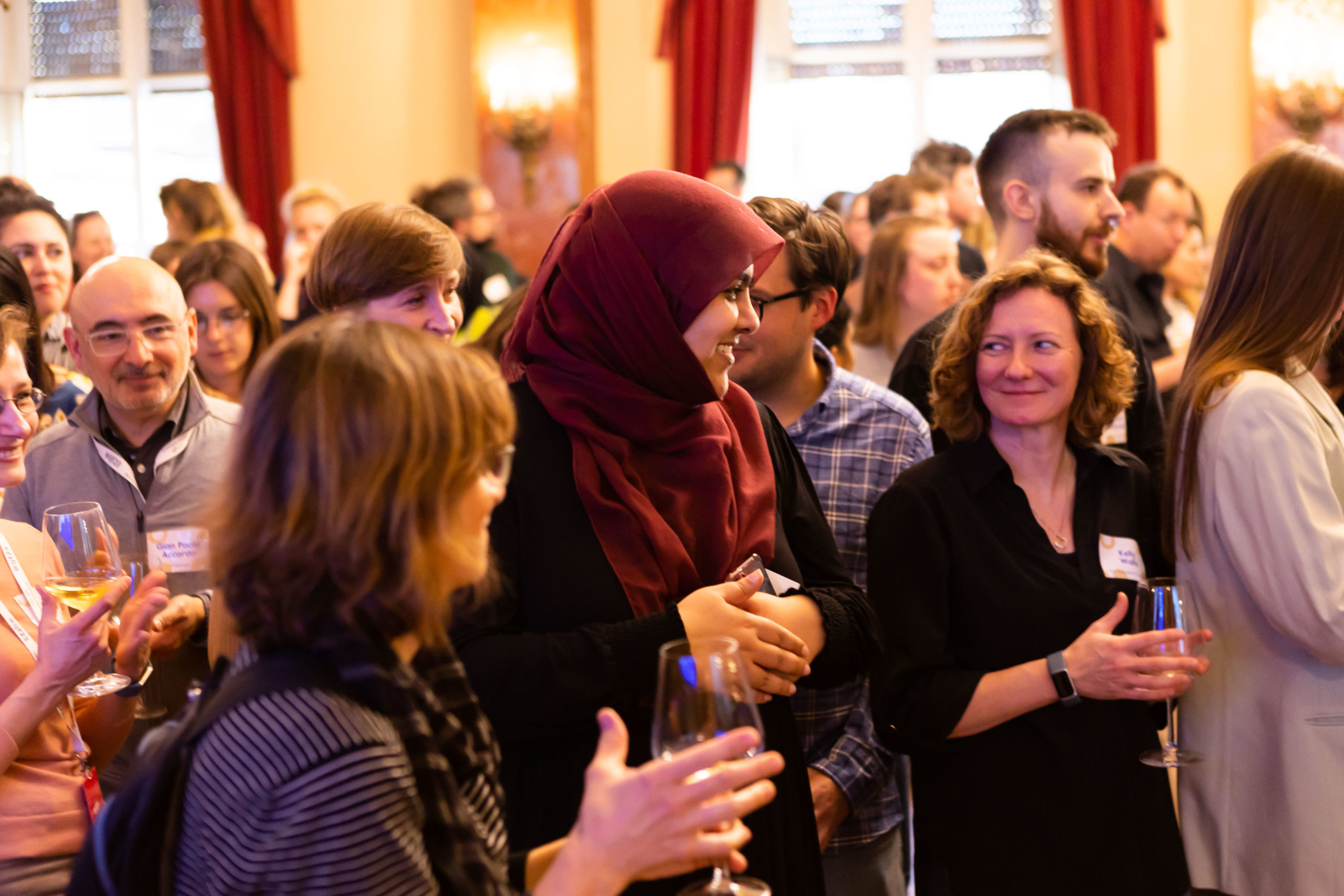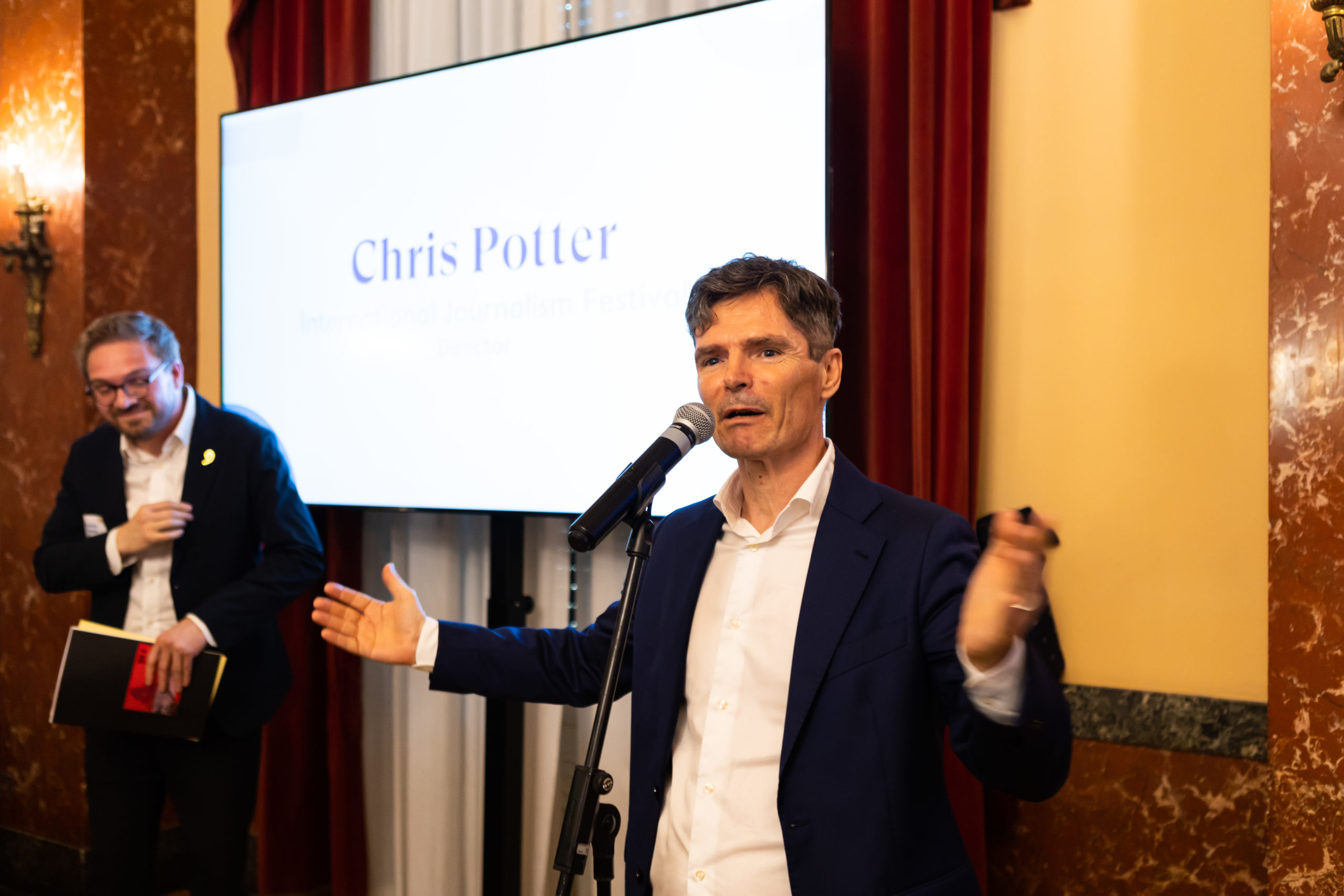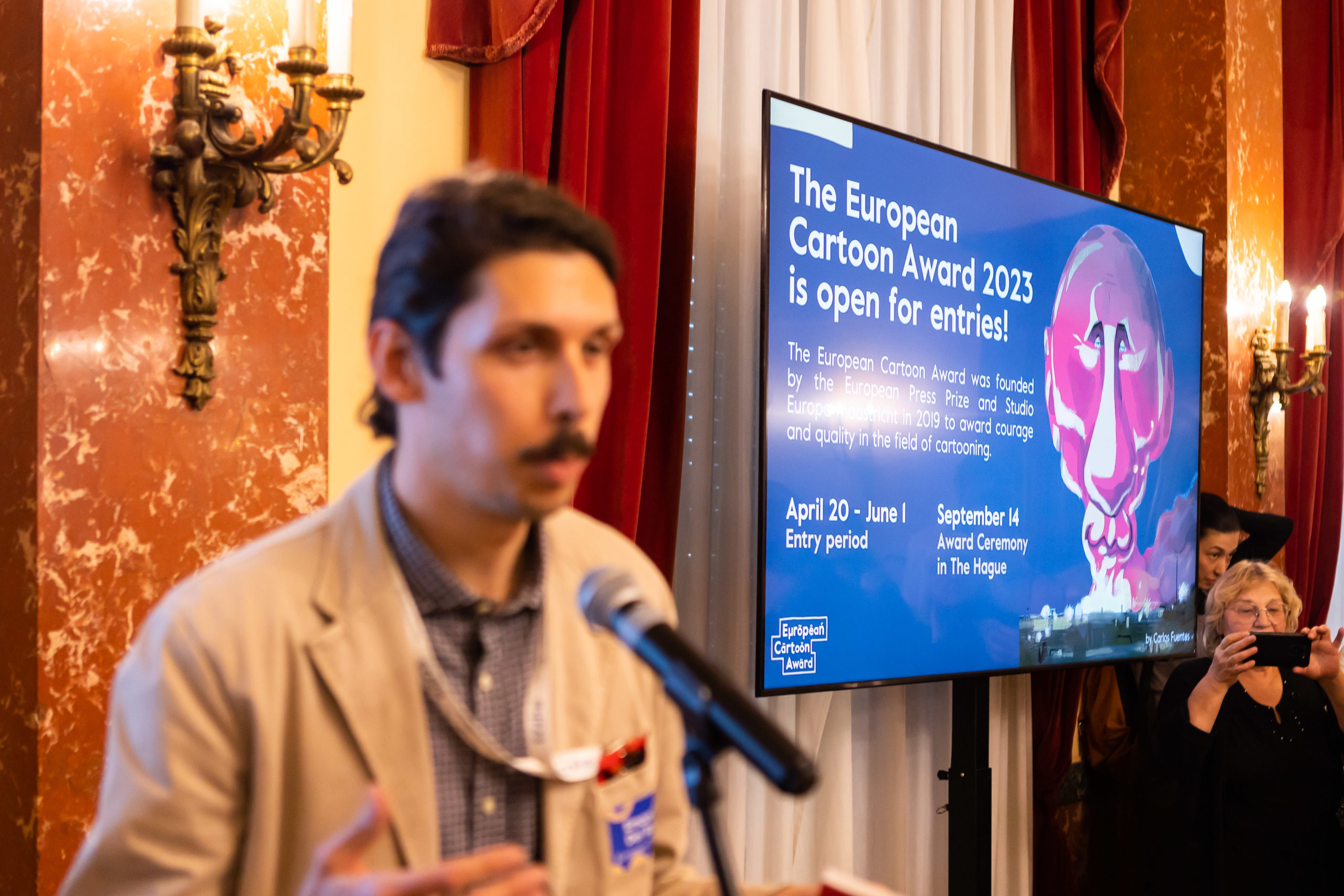The best of European journalism: The European Press Prize announces its winners and runners-up
(Tbilisi, June 9, 2023) The European Press Prize announces the winners and runners-up of its 2023 edition. This edition, the 11th, is the first in which the category Migration Journalism is awarded. This year’s Special Award is exceptionally dedicated to the coverage of the Ukraine war.
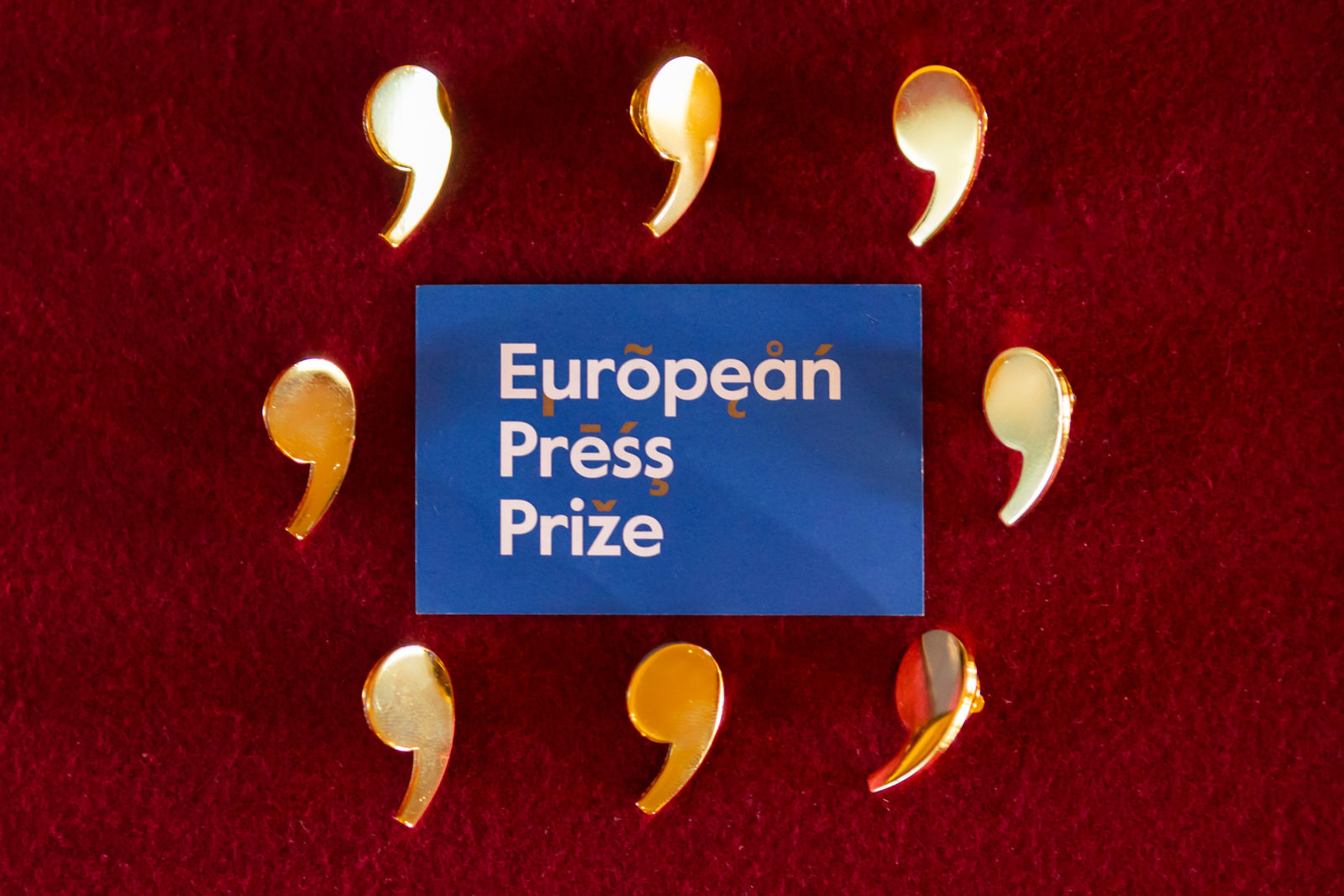
On June 9, from the Marjanishvili Theatre in Tbilisi, during the ZEG Storytelling Festival, the European Press Prize celebrated the best European journalism, with its 11th Award Ceremony. In this year’s list of Nominees are works that reflect what the European area has experienced in the recent period, from the Ukrainian war to the migration crisis and the environmental emergencies that gripple the entire world.
The travelling tribunal is the winner of the Distinguished Reporting Award. This piece tells the story of the unusual trial of Gibril Massaquoi, a Sierra Leonean that is accused of crimes against humanity and judged by a Finnish tribunal that moved, for the occasion, to Monrovia for several months.
Russian Asset Tracker, a collaborative project led by OCCRP and The Guardian wins the Innovation Award. In the wake of Russia’s brutal assault on Ukraine, governments around the world imposed sanctions on many of Putin’s enablers. The authors of this investigation tracked down as many of these assets as possible, and compiled them in the Russian Asset Tracker database for the public to see and use.
The Investigative Reporting Award goes to Death Weapons: Inside a Teenage Terrorist Network, for revealing the existence of a network of young neo-Nazis busy with setting up terrorist cells across Europe and the US with the aim of carrying out armed attacks.
The Migration Journalism Award goes to The long road to a home in Europe, a journey through the lives of 8 migrants, part of a group of 118 men who arrived in Europe after crossing the Mediterranean. Where did they go after their rescue? And how do they live now?
“She lost consciousness as it was happening and she’s actually grateful she did.” What we know about the rapes perpetrated in Ukraine by Russian soldiers is the winner of the Public Discourse Award. This piece collects all the accessible evidence of rape during the first month of the Russian invasion of Ukraine, and explains how psychologists are working with the victims.
And finally, the Special Award goes to Suicide missions, abuse, physical threats: International Legion fighters speak out against leadership’s misconduct. In this investigation, the authors expose leadership misconduct in the International Legion, the military formation for foreigners, created under the initiative of President Volodymyr Zelensky in the first days of the Russian invasion of Ukraine.
The Special Award dedicated to Ukraine Reporting
Every year, a Special Award is handed out by the Panel of Judges to one outstanding entry defying disciplines and categories.
This year, the Preparatory Committee, in accordance with the Panel of Judges, decided to transform the Award into a category itself, dedicated to Ukraine Reporting, with five shortlisted pieces.
Alan Rusbridger, Chair of the Panel of Judges: “This award recognises the breadth, the depth, the courage, the stamina, and the fortitude of the journalists who have been involved. They are extraordinary journalists and this award goes to the heart of why journalism matters, why we must defend it and why it’s so important to recognise the work of journalists that are prepared to do that work. They are the best, the bravest, the boldest among us, and I am so pleased that their work can be recognized tonight.”
Live from Tbilisi at the ZEG Storytelling Festival
For its 2023 edition, the European Press Prize partnered up with the ZEG Storytelling Festival, a festival of storytelling and journalism organised in Tbilisi by Coda Story and Impact Hub Tbilisi.
Natalia Antelava, Press Prize Laureate and organiser of the ZEG Storytelling Festival, explained:
“It’s a huge honour for us to host the European Press Prize at ZEG Tbilisi Storytelling Festival. The festival brings together storytellers from across different industries, and journalists are an important part of it. To have the best storytellers from across Europe in Tbilisi doing some of the most important journalism at this crucial time in the world history adds such a significance to our gathering.”
The first European Migration Journalism prize is awarded
This year the European Press Prize awarded the Migration Journalism Award for the first time – a new category launched in 2022 by joining forces with Fundacíon porCausa and the International Congress on Migration Journalism in Mérida as mission partners, and supported financially by the Robert Bosch Stiftung.
Dr. Raphaela Schweiger, Director of the Migration Program at the Robert Bosch Stiftung, about their support for the Migration Journalism Award: “Narratives about migrants and refugees and the role of media and journalism are deeply entangled. The establishment of a European Migration Journalism Award contributes to uplifting transparent, independent reporting on migration, bringing nuances into a way too often polarised debate.”
THE PRIZE 2023 AWARDS
DISTINGUISHED REPORTING AWARD
Winner
The travelling tribunal, by Johannes Böhme, published by Die Zeit.
Runner-up
Poland’s ministry of memory spins the Holocaust, by Katia Patin, published by Coda Story.
INVESTIGATIVE REPORTING AWARD
Winner
Death weapons: inside a teenage terrorist network, by Alexander Nabert, Christina Brause, Bryan Bender, Nick Robyns-Early, published by Welt Am Sonntag, POLITICO.
Runner-up
The Great Green Investment Investigation, by Ties Joosten, Ties Gijzel, Yara van Heugten, Remy Koens, Tom Bolsius, Leon de Korte, Linda van der Pol, Emiel Woutersen, Daniele Grasso, Carlotta Indiano, Fabio Papetti, Mathias Hagemann-Nielsen, Frederik Vincent, René Bender, Sönke Iwersen, Martin Murphy, Lars-Marten Nagel, Ingo Narat, Michael Verfürden, Volker Votsmeier, Joseph Gepp, Lars Bové, Peter van Maldegem, Yannick Lambert, Thomas Klein, Adrien Sénécat, published by Follow the Money, Investico, De Groene Amsterdammer, Børsen, De Tijd, Handelsblatt, IrpiMedia, Luxemburger Wort, Luxembourg Times, El País, Le Monde, Der Standard.
INNOVATION AWARD
Winner
Russian Asset Tracker, by Juliette Garside, Simon Goodley, Jasper Jolly, Kalyeena Makortoff, Antonio Baquero, Lara Dihmis, Alex Dziadosz, Jared Ferrie, Brian Fitzpatrick, Kevin Hall, Ilya Lozovsky, Eli Moskowitz, Will Neal, Stelios Orphanides, Miranda Patrucic, Olesya Shmagun, Graham Stack, Tom Stocks, Drew Sullivan, Julia Wallace, Jonny Wrate, Jan Strozyk, Misha Gagarin, Karina Shedrofsky, Alina Tsogoeva, Ivana Jeremić, Olena LaFoy, Bojana Pavlović, Dima Stoianov, Romina Colman, Ilia Donskikh, Nathan Jaccard, James O’Brien, Edin Pašović, Mark Nightingale, published by OCCRP, The Guardian and research and media partners: Anti-Corruption Data Collective, Bird.bg, Delfi Estonia, Follow the Money, Forbes, Frontstory.pl, infoLibre, Inside Story, Investigative Center of Jan Kuciak, Investigace.cz, IrpiMedia, MANS, Miami Herald, Le Monde, NDR, Oštro, profil, Re:Baltica, Reporter.lu, Siena.lt, SVT, Tamedia, De Tijd, Transparency International UK.
Runner-up
Ailing Brussels, by Karim Douïeb, Catherine Joie, Quentin Noirfalisse, Antoine Sanchez, published by Médor Magazine.
PUBLIC DISCOURSE AWARD
Winner
“She lost consciousness as it was happening and she’s actually grateful she did.” What we know about the rapes perpetrated in Ukraine by Russian soldiers, by Alla Konstantinova, published by Mediazona, Internazionale, Gazeta Wyborcza, gdh.
Runner-up
The eye of the whale, by Katarzyna Boni, published by Książki. Magazyn do Czytania.
MIGRATION JOURNALISM AWARD
Winner
The long road to a home in Europe, by Maartje Bakker, César Dezfuli, published by de Volkskrant.
Runner-up
Borders Inc: the migration control industry, by José Bautista, Alberto Alonso, Rocío Márquez, Emma Esser, Fernando Anido, Marta Ley, Laura Martín, Ángel Villarino, Alba Solla, Juan Aguilar, Ana Rojas, Marta Nevot, Nicolás Ribas, Ana Álvarez, Ekaitz Cancela, Emilia García Morales, Joseba Torronteras, Pablo Fernández, Sara Ortega, Patricia Macías, Álvaro Bravo, published by El Confidencial, Fundación porCausa.
SPECIAL AWARD
Winner
Suicide missions, abuse, physical threats: International Legion fighters speak out against leadership’s misconduct, by Anna Myroniuk, Alexander Khrebet, published by The Kyiv Independent
Runner-up
The Last Witness, by Alexandra Rojkov, published by Der Spiegel.
Notes from the IJF 2023: A journalism for the people
The 17th International Journalism Festival just ended, and the European Press Prize had the possibility to play a bigger role in it than in any other year of its history. We were there for an official event, announcing the 2023 Shortlist, and we had the chance to experience, once again, what happens when journalism, with all its journalists, meets the people.
Here are a few thoughts, collected in bullet points, maybe the blueprint for a manifesto for “A journalism for the people”:
- Proximity: Being near your audience is everything, and that is what the IJF is there for, we feel. In a world that is hyperconnected and yet made of separate islands floating in the e-space, making our presence tangible is crucial. We need to be seen, in flesh and bones and, sometimes, tired eyes, stressed faces, so that understanding can happen and a conversation can start. Social media are, or were, great, but it is time to sit at a table with our audience.
- Openness: In many countries, journalists are a special category that lives in a space in between, talking to the powerful and to the citizen. Sometimes this role can lead to the wrong assumption that journalists are like oracles that report the word of divinities. This all has to end, because democracies are made by the people, and any power is given, not taken. This festival showed the human side of journalism and provided a safe space for conversations on press freedom and democracy.
- Impact: People want to see the effect of journalism on their daily lives, that is, the impact great journalism has on what they care for. In Perugia, among the audience, were not only media professionals, but also locals, happy, worried, or curious about what a specific topic means for their nation, or even their city.
- Inclusivity and diversity: To make readers more interested, represent them better in your newsrooms. This might be a simple rule that, if followed, might attract more people to quality news and make journalism stronger. At the IJF, we attended the most diverse panels and workshops and felt that journalism, interpreted in this way, is more than the sum of its parts.
- Resilience: Fake news discredits good journalism, casting a shadow of distrust on the whole category. Journalists need to fight back, taking the stage and talking honestly about their profession, a job that has always been in jeopardy and yet, never becomes useless or outdated. This is because democracies need journalists, and journalists can show their audiences that they are there for them.
What we do, at the Prize, is support journalists everywhere in the world. This is why we were delighted to be able to participate in the International Journalism Festival, involving our community and, we hope, contributing to shaping this new journalism, a journalism made for those who can make things change: the people.
Thanks to the IJF organisation, to our Members, our Partners, and above all to our Community and to Vereniging Veronica for having powered our Shortlist Announcement event. See you next year!
Our Shortlist Announcement
In Perugia we announced our 2023 Shortlist, 30 projects that we believe represent the best European journalism of the year, divided into Distinguished Reporting, Investigative Reporting, Innovation, Public Discourse, the new category of Migration Journalism and a Special Award for Ukraine Reporting.
An important thank you goes to our PrepCom members, who read through all the entries we received and selected those you can explore today here. And, among them, a special thank you goes to Cristian Lupșa, our PrepCom Chair and host at the event, for helping us present our finalists with the enthusiasm they deserve.


